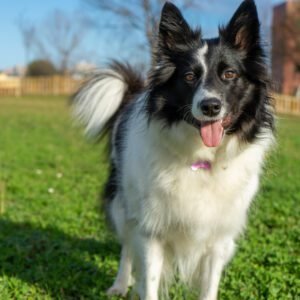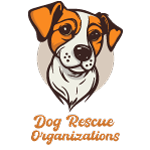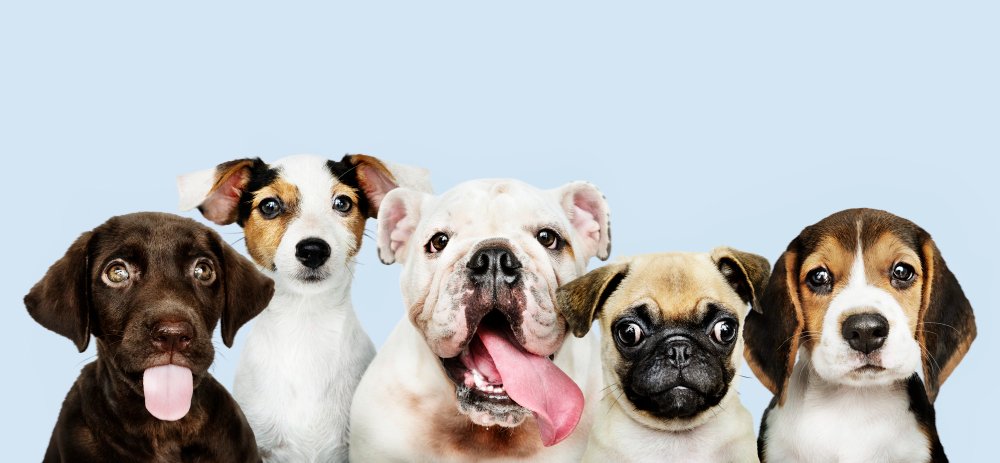Most Friendly Dog Breeds
When it comes to picking a pet friend, one of the most important traits many people look for is friendliness. Friendly dog breeds are known for their friendly nature, loving behavior, and their ability to get along well with people and other pets. In this piece, we’ll explore the most friendly dog types and what makes them such great partners.
Table of Contents
ToggleWhat Makes a Dog Breed Friendly?
Dog breeds that are considered friendly usually have certain traits that make them more likely to be open, loving, and easy to train. These dogs are often friendly, liking the company of people and other animals. They usually have a calm nature, which makes them great family pets.
Why Friendliness Matters in a Family Pet
Having a nice dog is especially important for homes with children or other pets. Friendly dogs are less likely to be violent and more likely to be calm and gentle. They can also provide safety and company, making them a valuable addition to any home.
Characteristics of Friendly Dog Breeds
Social Nature
Friendly dogs are often very social. They love connecting with people and other animals, which makes them great friends. They are likely to meet people with a wiggling tail and a happy attitude.
Temperament and Trainability
A nice dog’s demeanor is usually calm and even-keeled. They are also usually easy to train, reacting well to positive feedback and discipline. This makes them great for families who may not have a lot of experience with dog training.
Affectionate Behavior
Friendly dog types are often very loving. They love petting, being touched, and spending time with their humans. This loving behavior helps to build a strong bond between the dog and its family.
Top 10 Most Friendly Dog Breeds
Labrador Retriever
Labrador Retrievers are famous for their friendly and open nature. They are excellent family pets due to their gentle nature and love for human company. Labs are also very easy to train, making them great for homes with children.

Golden Retriever
Golden Retrievers are known for their friendly and accepting attitudes. They are incredibly patient and good-natured, making them excellent friends for kids. Goldens are also very loyal and clever, which makes teaching a pleasure.

Cavalier King Charles Spaniel
These small but powerful dogs are known for their friendly and loving attitudes. Cavaliers are very flexible and can fit into almost any life situation. They love to be around people and are known for their gentle behavior.

Beagle
Beagles are social, interested, and friendly dogs. They are very playful and enjoy the company of other dogs and people. Beagles are also known for their loving nature, making them great friends for families.

Boxer
Boxers are active and loving dogs. They are very protective of their families but are also known for their fun and loving nature. Boxers are great with kids and are very loving pets.

Irish Setter
Irish Setters are gentle and friendly dogs. They are very good with children and other pets and are known for their easy-going nature. Irish Setters are also quite clever, making them easy to train.

Bichon Frise
Bichon Frises are happy and friendly dogs that love human contact. They are small in size, making them great for city life. Bichons are also known for their fun and loving behavior.

Poodle
Poodles are highly clever and friendly dogs. They come in various sizes, including normal, tiny, and toy, making them perfect for different living situations. Poodles are very loving and enjoy being around people.

Collie
Collies are loyal and friendly dogs that are great with children. They are known for their gentle and calm attitude. Collies are also very clever and easy to train, making them great family pets.

Newfoundland
Newfoundlands are gentle giants known for their friendly and patient nature. They are excellent with children and make great friends. Newfies are very loving and love spending time with their families

Factors to Consider When Choosing a Friendly Dog Breed
Size and Living Space
When picking a dog, it’s important to consider the size of your living area. Larger breeds may need more room to move around, while smaller breeds can be more flexible to city life.
Activity Level
Different dog types have different exercise levels. Some breeds require a lot of movement, while others are more low-key. Make sure to choose a breed that fits your lifestyle and exercise level.
Grooming Needs
Some friendly dog types have higher cleaning needs than others. Consider how much time you’re ready to spend on grooming when picking a breed.
How to Foster Friendliness in Dogs
Early Socialization
One of the best ways to ensure your dog is nice is to train them early. Introduce them to different people, animals, and places to help them become well-adjusted and secure.
Positive Reinforcement Training
Training your dog using positive reward methods can help foster a nice and well-behaved pet. Reward good behavior with treats, praise, and love.
Consistent Routines and Boundaries
Establishing regular habits and clear boundaries can help your dog understand what is expected of them. This can lead to a more relaxed and friendly dog.
Conclusion
In conclusion, friendly dog types make wonderful partners due to their social nature, loving behavior, and easy-going temperaments. When picking a dog, consider factors such as size, exercise level, and care needs to find the right fit for your family. Remember, early education and positive reward training are key to developing kindness in any dog.
FAQs
The Labrador Retriever is often called the nicest dog breed due to its friendly and open nature.
Yes, many small dog types, such as the Cavalier King Charles Spaniel and Bichon Frise, are known for their friendly and loving behaviors.
A friendly dog usually has a relaxed body stance, moving tail, and is eager to connect with people and other animals.
Breeds like the Golden Retriever, Labrador Retriever, and Collie are excellent choices for families with children due to their gentle and patient nature.
Yes, teaching using positive reward methods can help improve a dog’s friendliness and general behavior.




